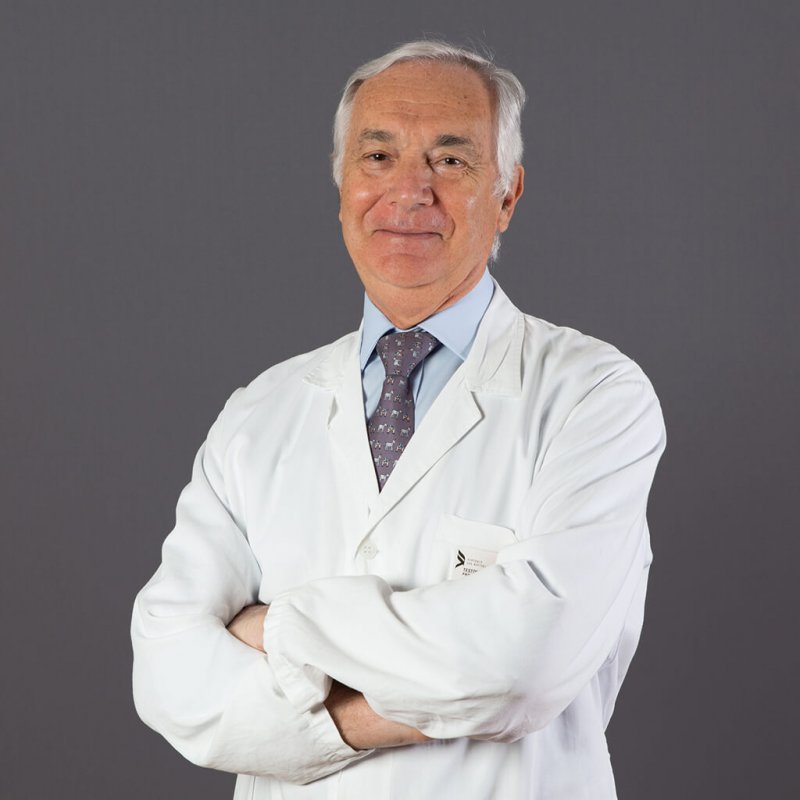Reflux and seasonal changes: what to do?

出版日期: 09-08-2024
更新日期: 17-10-2024
主题: 胃肠科
预计阅读时间: 1 分钟

医学编辑
Pier Alberto Testoni
编辑和译员
Viktoryia LuhakovaIn Italy, about a quarter of the population experiences symptoms related to gastroesophageal reflux disease (GERD), as explained by the Italian Society of Gastroenterology and Digestive Endoscopy (SIGE). This is a very common condition that tends to worsen under certain circumstances, such as seasonal changes. But why does this happen, and how can we alleviate the symptoms during these transitional periods?
Professor Pier Alberto Testoni, a specialist in Gastroenterology, Digestive Surgery, and Digestive Endoscopy at the Casa di Cura La Madonnina, explains the relationship between reflux and seasonal changes, and the best remedies to manage it during these times.
What is the connection between reflux and seasonal changes?
"Gastroesophageal reflux, which is the condition where stomach contents flow back into the esophagus, can become more pronounced during the transition from winter to spring or from summer to autumn.
This occurs because certain environmental changes (such as daylight hours and temperatures) and lifestyle changes (diet, physical activity, etc.) can influence the functionality of the gastrointestinal system, leading to an increase in typical symptoms such as heartburn and poor digestion," explains Professor Testoni.
In particular, if the seasonal change happens suddenly, it can stimulate certain nervous and hormonal connections, resulting in an increase in hydrochloric acid secretion in the stomach.
Why does reflux worsen with seasonal changes?
The worsening of reflux during seasonal transitions can be attributed to several factors, including:
-
Circadian rhythm variations: An increase or decrease in daylight hours can affect our biological clock, leading to changes in the circadian rhythm. This can impact digestion regulation, digestive motility, and the production of hydrochloric acid in the stomach.
-
Dietary changes: With the arrival of warmer or colder seasons, it is common to alter one's diet, often opting for foods that may increase acidity or are harder to digest.
-
Stress: Stress, along with the transition from a vacation setting to a work environment, can notably worsen gastroesophageal reflux. This can lead to increased acid production in the stomach and affect esophageal motility.
-
Sedentary lifestyle: During extreme temperatures, whether hot or cold, many people tend to reduce physical activity. However, balanced physical activity helps maintain a healthy body weight, reduces abdominal pressure, and lowers the risk of reflux. It can also improve digestion and intestinal motility, decreasing the time the esophagus is exposed to gastric acid.
Remedies and what to do
Effectively managing gastroesophageal reflux, especially during seasonal changes, requires a holistic approach that includes:
- Diet and lifestyle modifications
- Use of medications, if necessary
- Outpatient endoscopic procedures or surgery for more severe and long-lasting cases
Here are some medical tips to help alleviate the symptoms of the condition:
Diet
When it comes to diet, it is important to:
- Avoid certain foods and beverages that can irritate and worsen reflux symptoms:
- Spicy, acidic, fried, and fatty foods
- Alcohol, energy drinks, carbonated drinks, coffee, and tea
- Eat small, frequent meals instead of large ones, especially in the evening, as large meals can put pressure on the lower esophageal sphincter, facilitating reflux
- Chew food thoroughly and slowly
- Avoid lying down immediately after eating. If symptoms persist, try sleeping with your upper body elevated. It's advisable to wait at least 2-3 hours after eating before lying down to reduce the likelihood of acid refluxing into the esophagus. For the same reason, a raised sleeping position is recommended if nighttime regurgitation occurs.
Medications
For managing reflux, a doctor may prescribe certain medications (such as antacids, alginates, proton pump inhibitors, H2 receptor antagonists, prokinetics, etc.) that primarily work to:
- Reduce the amount of acid in the stomach
- Prevent acid from rising into the esophagus, thereby protecting its mucosa
- Improve gastric emptying
These pharmacological treatments may be necessary either for seasonal cycles or for an extended period, depending on the clinical condition.
When to consult a doctor
It is important to consult a doctor if you experience one or more of the following symptoms more than twice a week:
- Gastroesophageal burning
- Stomach acidity
- Cough after meals or during nighttime rest
- Regurgitation
- Difficulty digesting
- Nausea
These symptoms could indicate that you are suffering from GERD (Gastroesophageal Reflux Disease), for which a doctor should establish an appropriate treatment plan.
"A gastroenterologist will prescribe all necessary diagnostic tests to assess the clinical case and develop a targeted therapeutic program, with appropriate medications and dosages for effective and long-term results."